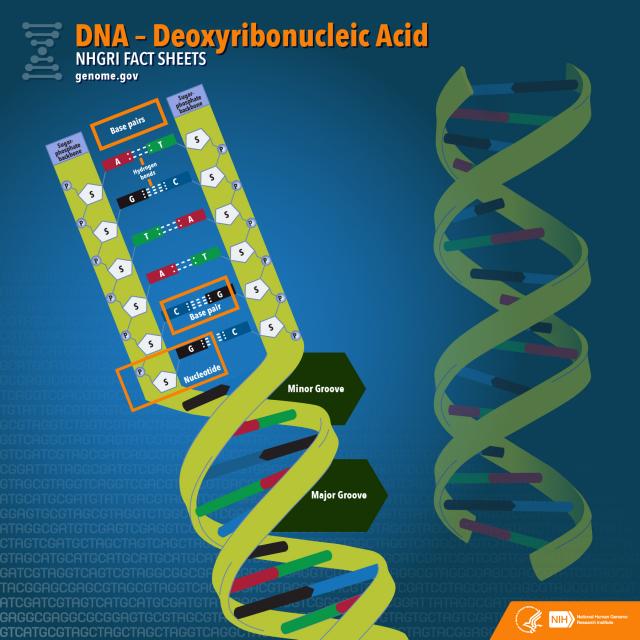Deoxyribonucleic Acid from NHGRI
This is an image of deoxyribonucleic acid from National Human Genome Research Institute (NHGRI). Deoxyribonucleic acid (DNA) contains the biological instructions that make each species unique. DNA, along with the instructions it contains, is passed from adult organisms to their offspring during reproduction. DNA is made of chemical building blocks called nucleotides, which are made of three parts: a phosphate group, a sugar group and one of four types of nitrogen bases. To form a strand of DNA, nucleotides are linked into chains, with the phosphate and sugar groups alternating. The four types of nitrogen bases found in nucleotides are: adenine (A), thymine (T), guanine (G) and cytosine (C). The order, or sequence, of these bases determines what biological instructions are contained in a strand of DNA. Credit: Darryl Leja and Ernesto del Aguila, NHGRI

https://www.genome.gov/
© 2007–2024 XoaX.net LLC. All rights reserved.
